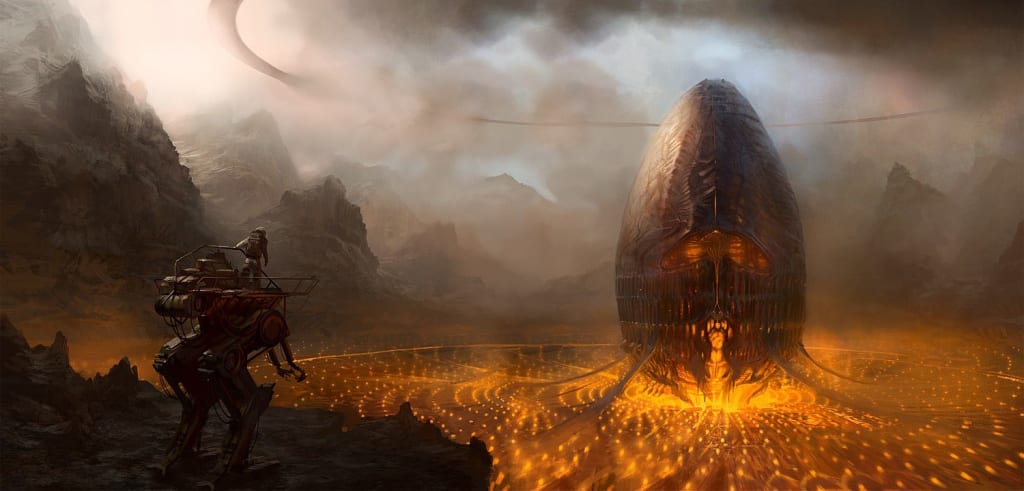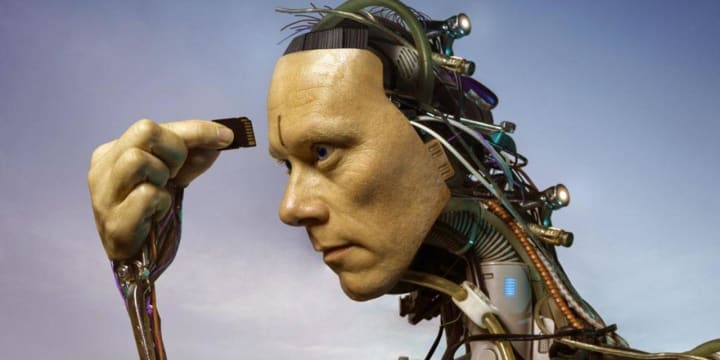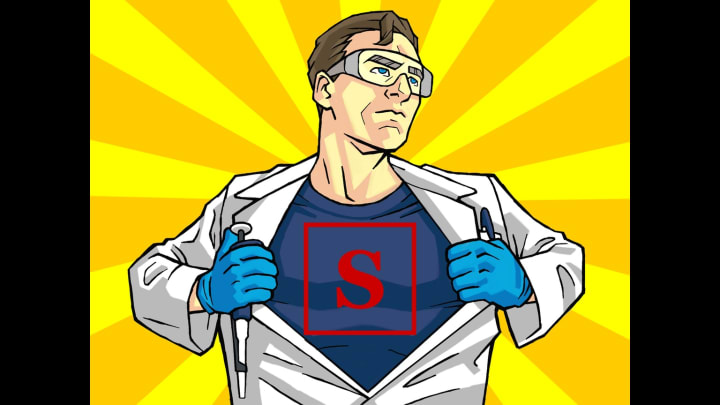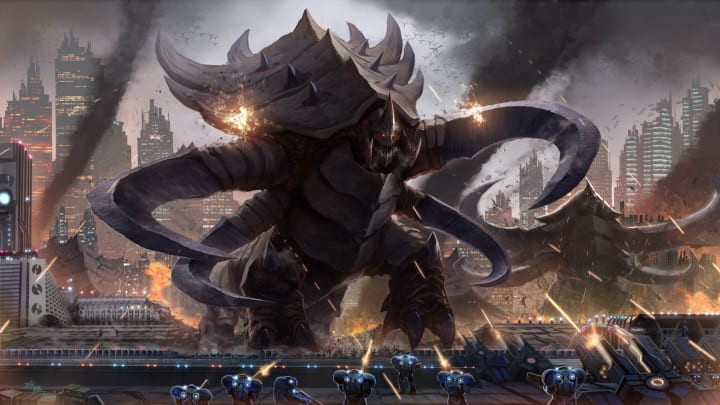Actual Sci Fi and Fantasy Classes That Get You College Credit
Hitting the books has never been so much fun.

While your mom might question how watching Battlestar Galactica could possibly be considered educational, a whole bunch of college professors have somehow managed to convince their department chairs that your mom is wrong. (Just about the Battlestar Galactica thing. Otherwise, moms are always right.) Sure, it’s deeply meaningful and has a lasting effect on culture and taps into truths about who we are as human beings, but it’s also FUN. Marvel at the stupefying genius of the academics who made it possible for you to get credit for reading Hitchhiker’s Guide and doing your final project on cyborgs--if you’re lucky enough to go to the universities that offer them. (Of course, this list don’t include the many Science Fiction Literature or Fantasy Literature classes you can take at colleges all over the country. You’ve probably got a decent shot at finding one of those.)
Philosophy and Star Trek, Georgetown University

Watch Star Trek, read philosophy, then discuss it with your classmates and professor. Many metaphysical topics come up in Star Trek, so it’s a natural choice. Here are some of the questions that the class will consider:
- Is time travel possible? Could you go back and kill your grandmother? What is time?
- What is the relation between your mind and your brain--are they separate items or identical? Can persons survive death? Could a machine someday think? Is Data a person?
- What is a person? Must you have the same body to be you? Same memories? When do we have one person, and when do we have two (think of the episodes where people "split" or "fuse").
- Do you have free will, or are you determined by the laws of nature to do exactly what you wind up doing (while believing you have free will)? Or both? What is freewill?
- Could reality be radically different from what “we” think?
If you’re a hardcore Trekkie, you’ve probably thought about these questions before (argued about them, even) so this will be an easy A.
The Science of Superheroes, UC Irvine

This fascinating course will focus on pataphysics, the science of imaginary solutions, with an additional focus on the creation of functional prototypes. You’ll analyze both classic and modern science fiction films and texts, then actually fabricate (or interpret in code) the technologies they depict. Topics will include virtual/augmented reality; networks; artificial intelligence; nanotechnology; humanism and transhumanism; cyborgs and robotics; environmental issues; biology; utopias and dystopias; surveillance; music and art; interfaces; wearables; and/or religion, culture, and society. Among many obscure films and books that will be new to you, you’ll revisit old favorites like The Matrix, Hitchhiker’s Guide to the Galaxy, Do Androids Dream of Electric Sheep?, and 2001: A Space Odyssey.
The Science of Superheroes, UC Irvine

Bam! Pow! Great Krypton! Shazam! HULK SMASH! The Science of Superheros focuses on three main issues: How does science work? How does science use math? What are the big principles of science? Answering these questions through looking at superheroes allows students to better evaluate science claims and determine whether they are likely true or false (as well as contemplating whether the physics in popular Marvel and DC movies are actually possible or wild leaps of imagination). Technically, this is a physics course dressed up in tights and a cape; for example, you’ll examine the physics of flying and fluid dynamics by studying Spider-Man, consider the nature of "spidey sense," and ponder the mechanics of Wonder Woman's invisible jet.
Game Theory in Starcraft, UC Berkeley

Part of UC Berkeley’s alternative education program, this student-led class combines discussions of video game strategy and tactics with the study of serious literature like Sun Tzu’s The Art of War and Lim Yo’s Crazy As Me. Don’t think you’re just going to goof around and have fun - the syllabus warns that “calculus and Differential Equations are highly recommended for full understanding of the course.” Lectures will range from straight-up theory to the computational aspects of conducting battles. In the course outline, topics include Building Placement and Base Layout, Deception, Timing and Evaluation of Resources, Army Movement and Positioning, and Tournament. Final projects must make a significant contribution to the Starcraft community and will be displayed in a public forum so everyone can enjoy waging war across the galaxy with even greater skill. (And if you go to the University of Florida, they offer a similar course called 21st Century Skills in Starcraft, so check that one out too.)
Science of Harry Potter and Sociology of Harry Potter, Frostburg State University

Frostburg University is really the place to be if you love the wizarding world of Harry Potter - they offer not one but two courses on the subject. In Science of Harry Potter, you’ll ask questions like, “Can genetic engineering explain Fluffy the three-headed dog?” and “Could antigravity research produce a flying broomstick?” Students will examine the magical world of Harry Potter through physics, biology, chemistry, and engineering. Although Professor Plitnik (his actual name, not made up by J.K. Rowling, amazingly enough) says that the class isn’t just for fun, he HAS been known to come to class dressed as Dumbledore. In Sociology of Harry Potter, you’ll look at questions like, “How does the Minister of Magic influence criminal justice in Harry Potter’s Wizarding World?” and “Does villain Voldemort’s control rival that of Adolf Hitler during World War II?” Expect discussions about the lives of witches and wizards versus those of squibs and Muggles, how people with mental illness are viewed in both worlds, and even the comparison of werewolves in Harry Potter’s world to those with HIV in the real world.
Game of Thrones, University of Virginia

Here’s a unique course that looks at both the wildly popular HBO series and the literary works of George R.R. Martin (that heartless character-killing genius). The books and television episodes will be considered both on their own merits and in comparison to each other. The course will involve discussions on topics such as characterization, racial and cultural allegory, resistant conclusion and promiscuous identification. This is part of the University of Virginia’s Special Topics in Literature series. If you’re worried about passing, just remember what Tywin once said: “The greatest fools are ofttimes more clever than the men who laugh at them.”
Pokémon GO, University of Idaho

Inspired by the recent phenomenal success of Pokémon GO, the University of Idaho offers this gym class (yes, really) that encourages students to go out and get some physical activity while having fun at the same time. The course will explore not only Pokémon GO but other smartphone app games as well including Humans vs Zombies, all the while learning about team building and the importance of making physical activity a regular part of your lifestyle. The instructor had begun developing the curriculum before Pokémon GO went viral, but he plans on leveraging its wild popularity to draw students to his class. Uh, yeah. Don’t think you’re going to have any problem with that one, professor.
Myth and Science Fiction: Star Wars, The Matrix, and Lord of the Rings, Centre College

I can’t really say I see the hard work part of this class, but who’s complaining? In this literature-based course, students “study” films and television shows such as Star Trek, Stargate, The X-Files, The Matrix, Dr. Who, and The Lord of the Rings. The class does take a look at how these modern day stories find their roots in classical myths, comparing patterns and narrative devices, so I guess there is some scholarship involved...I’m sorry Centre College. I’m not trying to say you shouldn’t give credit for this course. It’s just so unbelievably awesome that you do.
About the Creator
Sarah Quinn
I'm a writer in love with India, Stars Wars, fantasy, travel, and Thai curries. My childhood heroes were Luke Skywalker and Joan of Arc. I muse on superheroes, sci-fi, feminism, and more.






Comments
There are no comments for this story
Be the first to respond and start the conversation.